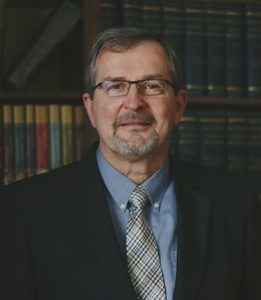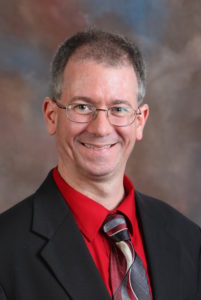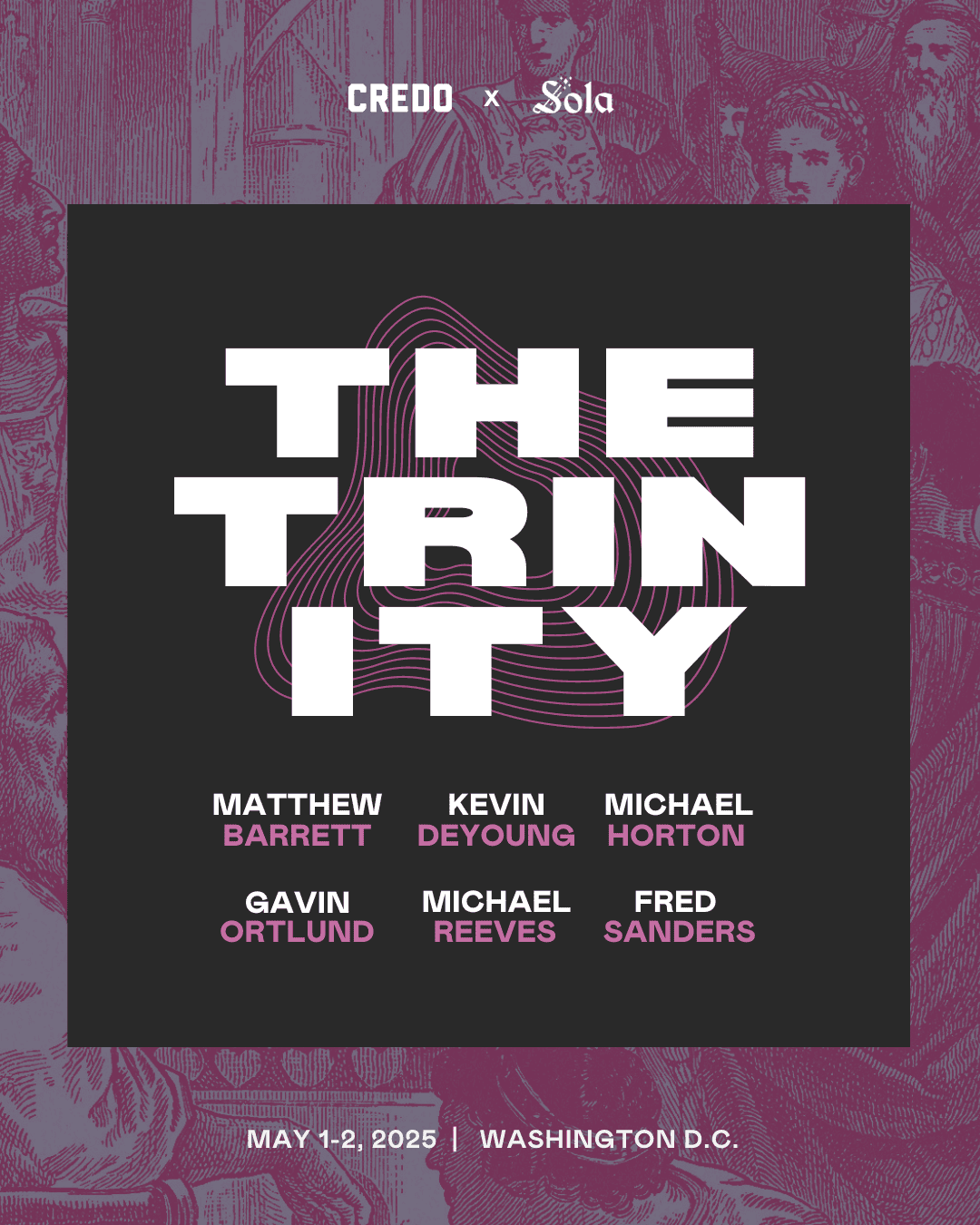
Why We Need Systematic Theology
Of what use is systematic theology? Students preparing for Christian ministry have been known to joke that books of theology are very practical for putting in the trunk of your car to increase your traction on slippery winter roads.
Seriously, though, why do we need systematic theology? How we answer the question depends a lot on what we think theology is.
For some ecumenically minded people, systematic theology consists of intolerant arguments about religious opinions, a holdover from the days when people killed each other in wars of religion. Their motto is, “Doctrine divides while service unites.”[1] Who needs theology like that—arrogant, divisive dogmatism that is always looking for a fight?
Pragmatists might regard theology as a bunch of intellectual theories with little relevance for the mission of the church. How can we waste time arguing about the Trinity while the world needs to hear the gospel, they ask? Of course, they assume that we can have a gospel without the Trinity. Those who would reduce the whole Christian message to “believe in the Lord Jesus, and you will be saved” (Acts 16:31) must be prepared to explain who this Jesus is, which is the work of Trinitarian theology.
Others would define theology as various attempts to explain mankind’s universal feeling of dependence on the divine. Each religion has its point of view, but they all grope after the same ultimate reality. “Systems of theology,” according to Friedrich Schleiermacher, are just the “shell” around the “kernel” of authentic religion, which is the “feeling of the Infinite and Eternal.”[2] If that is the case, then theology is not nearly as important as experiencing God.
Yet others would view theology as a philosophical analysis of religion as a cultural phenomenon. Paul Tillich said that theology is not about the study of God, nor the presentation of supernaturally revealed truths, but a system built “on the ground of the philosophy of religion” and embedded “within the confessional, universal religious-historical, and intellectual historical circles.”[3] If that is theology, then it seems both irrelevant to ordinary life and impractical for anyone except philosophers to read and understand. Every true Christian lives by true biblical doctrine and theology. Share on X
Theology vs. Christian Living
However, what if we defined theology as follows? “Theology is the doctrine of living to God by Christ,” as Petrus van Mastricht and Jonathan Edwards said, building on the thought of William Ames.[4] Ames explained, “Men live to God when they live in accord with the will of God, to the glory of God, and with God working in them.”[5]
What could be more important, practical, and refreshing than the knowledge of how to orient your whole life to God, the “fountain of living waters” (Jer. 2:13)? But wait, someone might object, that’s not theology but Christian living. In reply, we say that living to God requires knowing who the true God is versus all the idols of the world (1 John 5:20–21). The Lord said that the one thing worth boasting in is knowing who the Lord is (Jer. 9:24).
The first volume in the Reformed Systematic Theology series draws on the historical theology of the Reformed tradition, exploring the first 2 of 8 central points of systematic theology with an accessible, comprehensive, and experiential approach.
Furthermore, since theology is the doctrine of living to God by Christ, theology centers upon the gospel and supports it. False doctrine ultimately undermines the gospel of Jesus Christ. Good Christian theology is the solid steel tower that lifts up the antenna of evangelism from which we broadcast the radio signals of the gospel to the world.
But if that’s the case, says the objector, then why are books of theology so much more difficult to understand than John 3:16? In reply, we note that some books of theology aim at people without seminary training, some at pastors, and some at scholars. All are necessary. It’s like medicine. You might not know what pulmonary adenocarcinoma is, but you are very grateful when a doctor properly diagnoses and treats your lung cancer. In the same way, Christians may not understand the terms Nestorianism and hypostatic union, but they are grateful when their pastor can refute the false teaching that Jesus and God’s Son are two persons because that pastor was trained by seminary professors in sound theology. For Christianity stands or falls on the confession that Jesus is the Christ, the Son of the living God (Matt. 16:16).
For the Body of Christ
Systematic theologians gather the teachings of the whole Bible on each topic it addresses and labor to integrate them into a unified body of teachings. This is a precious gift to the body of Christ, for believers long to know their God, their salvation, and their glorious hope. Yes, individual theologians may be divisive, impractical, overly experiential, or too philosophical. However, systematic theology as a discipline, especially in the classic Reformed tradition, is biblical, doctrinal, experiential, and practical.
Consequently, every true Christian lives by true biblical doctrine and theology. Doctrine grounded in Scripture, experienced in the soul, and made practical in daily, Christian living is not boring or dry. Good and helpful systematic theology makes doctrine come alive in the totality of our being: head (intellectually), heart (experientially), and hands and feet (practically)—all grounded in and flowing out of Scripture alone. That’s why Martin Luther claimed that, by the Spirit’s grace, doctrine was heaven for his soul because “by these things men live” (Isa. 38:16).
So, yes, we need systematic theology. Let us cherish systematic theology, read it at whatever level we can, and pray for our theologians, for they labor in the spiritual battle for our eternal good.
Editor’s Note: Content adapted from Reformed Systematic Theology: Volume 1: Revelation and God by Joel R. Beeke and Paul M. Smalley. The article first appeared on Crossway.org; used with permission.
Endnotes
[1] This was the motto of the Universal Christian Conference on Life and Work in Stockholm, August, 1925, a precursor of the World Council of Churches. See Paul Abrecht, “Life and Work,” in Dictionary of the Ecumenical Movement, ed. et al. (Geneva: World Council of Churches; Grand Rapids, MI: Eerdmans, 1991), 613.
[2] Friedrich Schleiermacher, On Religion: Speeches to Its Cultured Despisers, trans. John Oman (London: Kegan Paul, Trench, Trübner, & Co., 1893), 15–16.
[3] Paul Tillich, Visionary Science: A Translation of Tillich’s “On the Idea of the Theology of Culture” with an Interpretive Essay, trans. Victor Nuovo (Detroit: Wayne State University Press, 1987), 20–21.
[4] William Ames, The Marrow of Theology, trans. John D. Eusden (Grand Rapids, MI: Baker, 1968), 1.1.1 (77); Petrus van Mastricht, Theoretical-Practical Theology, trans. Todd M. Rester, ed. Joel R. Beeke, 7 vols. (Grand Rapids, MI: Reformation Heritage Books, 2018), 1.1.26 (1:98); Jonathan Edwards, “The Importance and Advantage of a Thorough Knowledge of Divine Truth,” Sermon on Heb. 5:12, in The Works of Jonathan Edwards, 26 vols. (New Haven, CT: Yale University Press, 1957–2008), 22:86.
[5] Ames, The Marrow of Theology, 1.1.6 (77).


